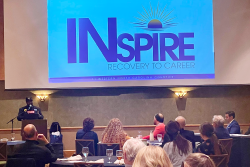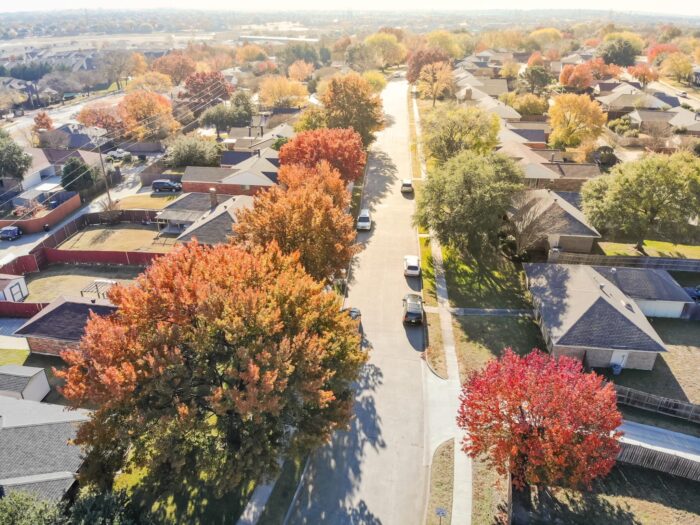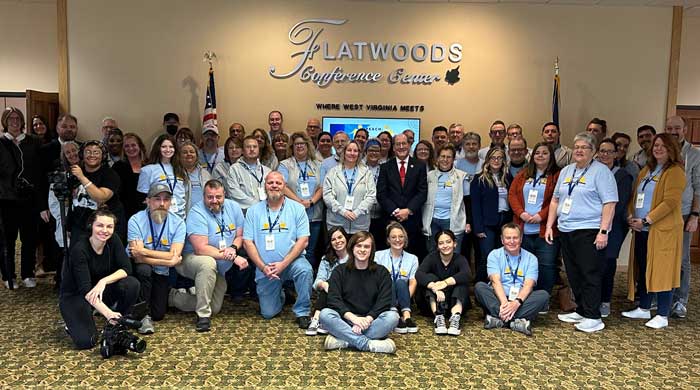Through ARC’s INSPIRE Initiative, the award package will expand support services to help Appalachians in recovery enter and re-enter the workforce in nine Appalachian states.
Asheville, N.C., September 18, 2024—Today, the Appalachian Regional Commission (ARC) awarded nearly $11.5 million to 39 projects through its Investments Supporting Partnerships in Recovery Ecosystems (INSPIRE) Initiative, which aims to address the impact of substance use disorder (SUD) in Appalachia with investments in projects that create or expand services in the recovery ecosystem leading to workforce entry and re-entry.
ARC’s 2024 INSPIRE grantees will strengthen the SUD recovery ecosystem in 127 counties in nine Appalachian states—Kentucky, New York, North Carolina, Ohio, Pennsylvania, South Carolina, Tennessee, Virginia, and West Virginia—by expanding recovery-focused partnerships, peer support and other wraparound services, and skills and workforce training programs that help prepare individuals in recovery for meaningful job opportunities.
“Substance use disorder is a region-wide epidemic that impacts Appalachian families and community workforces,” said ARC Federal Co-Chair Gayle Manchin. “I commend our 2024 INSPIRE grantees for their dedication in helping Appalachians who have struggled with substance use disorder regain a sense of hope and purpose by enabling them to rejoin their communities, bolster workforce development, and make positive impacts on the region.”
“In order to truly address substance use disorder, we must create an environment that includes support for wrap-around services such as housing, job training, and counseling,” said ARC States’ Co-Chair Tennessee Governor Bill Lee. “INSPIRE funding helps make this possible by empowering organizations to make an impact across the Appalachian region. We are proud of Tennessee’s nine grantees who are focused on this important work.”
Federal Co-Chair Manchin made the award announcement with North Carolina Health and Human Services Secretary Kody Kinsley, grantees, and state partners during a press conference at the headquarters of Land of Sky Regional Council—INSPIRE grantee and local development district—in Asheville, North Carolina.
“Communities in the Appalachian region, especially rural towns, have borne the brunt of the disease of addiction,” said Secretary Kinsley. “We are grateful to our federal partners for tackling these disparities head-on by investing in behavioral health services and supports.”
With this award package, ARC has invested $53.6 million in 166 projects across all 13 Appalachian states since INSPIRE was established in April of 2021. Together, ARC’s INSPIRE investments will impact 360 Appalachian counties, improve over 3,000 businesses and help prepare nearly 16,200 individuals for new opportunities in the workforce.
New Data Reveals Reduction in SUD-related Deaths in Appalachia
SUD recovery-to-work initiatives may be starting to make an impact, according to a new ARC research report that examines trends in diseases of despair including overdose, suicide, and liver disease. From 2021 to 2022, the overall diseases of despair mortality rate decreased 4 percent in the Appalachian Region while remaining virtually unchanged in the rest of the United States. However, work remains to be done, as these rates—in both Appalachia and the rest of the country—remain much higher than the pre-pandemic figures of 2019.
ARC expects to issue a Notice of Solicitation for Applications (NOSA) for the next round of INSPIRE funding in early 2025.
Learn more about ARC’s INSPIRE Initiative and our new INSPIRE grantees at arc.gov/SUD.
About the Appalachian Regional Commission
The Appalachian Regional Commission is an economic development entity of the federal government and 13 state governments focusing on 423 counties across the Appalachian Region. ARC’s mission is to innovate, partner, and invest to build community capacity and strengthen economic growth in Appalachia to help the region achieve socioeconomic parity with the nation.



